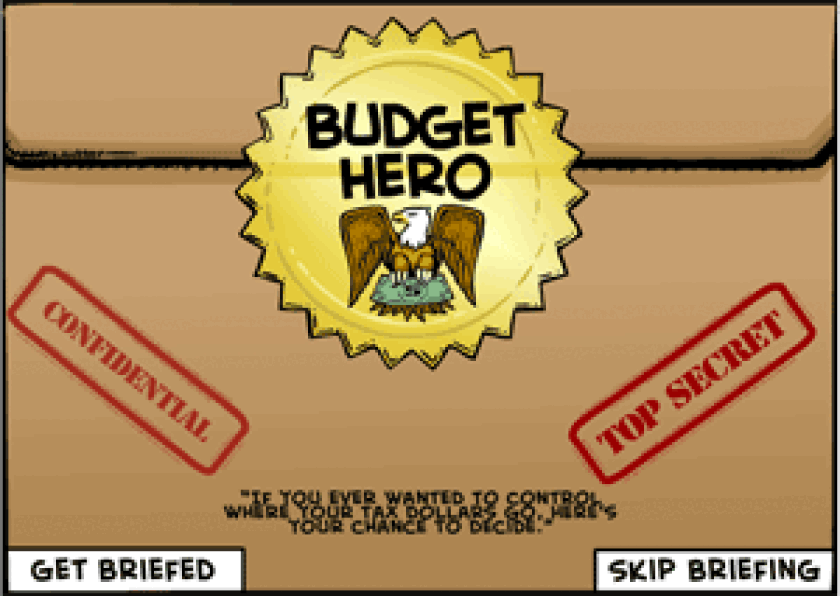
The great debate in government today is how to achieve balance in the wake of rising debt and budget deficits. On one side are the deficit hawks arguing strenuously for deep and immediate cutbacks in government spending. On the other is a collection of interest groups who stand to lose from such budget cuts. The result in many cities, states and even national governments is a political standoff that extends from politicians way down to the voters who put them in office.
One way to break through the impasse is to first seek agreement around what's driving the fiscal gap. Working together to identify all the possible alternatives (and their impact) is easier than jumping right to the "solution." In reality, there isn't one solution, but an infinite number of possible solutions, each of which embodies different tradeoffs.
These tradeoffs involve tough questions.
To what extent are you willing to reduce promised benefits for the elderly? To what extent are you willing to impose means-testing on programs? To what extent are you willing to raise taxes, and what impact will those taxes have on economic growth? What is an acceptable level of debt 30 years out? To what extent are you willing to reduce spending in other areas of government, such as transportation, agriculture or defense?
One tool that might help break the impasse and gain enough traction is to use games that model different futures based on policy choices today.
There are a number of simulation games that allow players, by making different choices, to "create" different futures. For example, FloodSim is a game that "aims to raise awareness of the vast number of issues surrounding flood policy and government expenditure and to increase citizen engagement through an accessible simulation." A similar game called Budget Hero allows players to create various fiscal futures depending on policy choices made over the course of a number of years.
The games can even get physical. Budgetball is a ball-based team game that encourages teamwork to move play forward -- but teamwork based in sharing the pain of budget choices early and often. It is a fun event intended to encourage a national conversation about how we can politically address our fiscal challenges, with the specific aim of bringing "regular people" into the discussion. Young people in particular start to become aware of how small decisions made now can have a large impact later.
The very act of playing such a game causes a subtle psychological shift: The players can see how the choices they make now actually shape the future. The game compresses the passing of time in the same way that time-lapse photography does. Suddenly, that report that says we go broke in 2030 has a more powerful visceral impact. In the short term, politics allows us the illusion of having our cake and eating it too, enjoying both low taxes and rich benefits by time-shifting costs into the future. The game crushes this illusion by compressing time.
Before getting to agreement on the tradeoffs, a shared conception of the likely impact of such choices at least sets up the possibility for discussion. If you ask people whether they would like to cut defense, education or infrastructure, the answer will always be "No." However, if a picture emerges of the consequence of not cutting anything, then facing hard choices that have heretofore been avoided becomes a little easier.
This column is adapted from our new study Red Ink Rising: The Road to Fiscal Sustainability.







